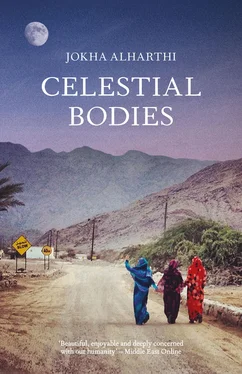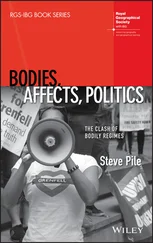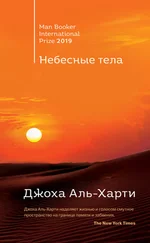Sometimes Asma’s father asked her to read to him from this tome. She found it difficult to follow the cramped script. Just as trying, Asma would find herself suddenly having to awkwardly shorten certain expressions containing words she was embarrassed to read out loud in her father’s presence.
On her shelf also was the story of Tawaddud the Jariya, a small book with a few pages ripped out. Years later Asma would remember two things about this story: the absence created by the ripped pages, and the simile comparing Tawuddud the Slave-Girl’s neck to the graceful stem of a silver ewer.
There was also the blue-spined book called Kalila and Dimna , the fables said to have been authored originally in Sanskrit by the Indian philosopher Bidpai, translated into Persian, and then translated into Arabic by the scholar Abdallah Ibn al-Muqaffa — a diminutive book no taller than a hand span, looking more like a little school notebook — printed at Sadir Press in Beirut in 1927. There was one passage from Kalila that Asma particularly liked to read out loud to Khawla, for its lyrical beauty, created by the repeated aa s and haa s, the feminine possessive pronoun at the end of so many nouns. Qaala al-ghuraab: za’amuu anna ardan min aradi... The crow said: They claimed that after the passage of years, lands where the elephants dwelt went dry. The water grew scarce, the wells dried up, the vegetation was killed off, the trees withered away and the elephants grew very thirsty...
There were also some books furnished by the Ministry of Heritage. Asma had begun reading some sections headed ‘On Matters of Purity’ but they were too boring and she stopped. They were odd, too — the very specific instructions that she couldn’t figure out, because they appeared to make no sense. For example, that one must do one’s intimate business on a soft surface rather than a hard one so that one’s pee sinks in rather than ricocheting and possibly soiling one’s body. Yet every bathroom she’d ever seen had hard surfaces. Another point she had fretted over was the legists’ directive on always wiping yourself with stones before you cleaned yourself with water. Never mind that people didn’t always live in the desert now! There were many other such instructions, which were apparently changeless since they were never updated in these texts, even though some of these books of the jurisprudents’ rules that Asma tried to read had been published quite recently. Asma only glanced at the thin little English-language books Mayya had bought from The Family Bookstore in Muscat before her marriage. No one could read them but Mayya had doggedly persisted in picking them up and even leafing through them.
As she always did, before turning away from the bookshelf Asma riffled through the few pages remaining from a book whose title she did not know. She had kept it apart from the other fragile, deteriorating books in the storeroom. In these pages she read that text, though she already knew it by heart, even if she did not understand it at all.
Some of those who fancy themselves philosophers claim that God, Mighty is He, created every soul in the shape of a ball. And then He split every one of these spheres into two, and apportioned to each and every human body one half. It is decreed that each body will meet the body that holds the other half of that rent soul. Between the two a passion arises from that ancient bond. From one human being to the next, the effect of this union will vary, according to the delicacy of each person’s nature.
Salima’s husband was returning from the evening’s conviviality at the nomads’ settlement when he was overpowered by a mad ecstasy. The sand under Azzan’s feet was very soft; he had slipped off his sandals to enjoy the quiet coolness of the desert surface. The full moon kept him friendly company, sending familiar shadows across the sandy mounds. From afar appeared the lights of al-Awafi, muted and remote, as though the village were a faraway world he did not know. He’d spent half the night in storytelling and conversation with his Bedouin friends — the usual singing and laughter, the music of a flute and a rebec.
Azzan had decided to return to al-Awafi on foot, turning down the offer of a ride in any of his friends’ four-wheel-drive jeeps. The homes of the Bedouin scattered beneath the lip of the vast sand dune were not very far away from al-Awafi, but at no point did the two settlements overlap. Al-Awafi held fast to the immobile stability of its agricultural roots. The Bedouin — despite all appearances of permanence, having settled in one locale and replaced their camelhair tents with cement block dwellings — scorned, even despised, the very idea of putting down roots. They relied first and foremost on pasturing camels and sheep. They held fast to their traditional loose garments and their free, untethered natures, preserving the impermeable boundaries that separated them from what was called ‘the life of the settled’.
These evening sessions were the only thing that could lift Azzan out of his gloom and depression. Mingling with his Bedouin friends, he could keep that heavy cloud from settling over his heart, from convincing him that stories and laughter were nothing but the banal and trivial games of this fleeting lower world, this den of sorrows. When he was with them, amidst the singing, the memory of his two dead sons no longer caught in his throat like a lump and he didn’t feel so weighed down by the world that all he wanted was to vanish and leave its false pretences behind. When he was with them, the notion that one could feel some joy at the pleasures of this world no longer churned up pangs of guilt from deep inside him. He could enjoy himself without the lurking worry that it was all a chimera he must avoid; he needed to be as alert to its dangers as he was on guard against the most vicious of traps.
As he walked over the sands, he repeated in his head some of the verses they’d sung, trying to match his steps to the beat of the tune. The face of his newborn granddaughter appeared to him. He was only in his mid-forties but he had become a grandfather! Suddenly eager, he felt an urge to reach home right now , to go into the middle room where he would see her tiny face, asleep. He smiled to himself and was on the point of humming a tune when he was startled by the sight of a human shadow between the rises of sand. In the name of God! he muttered, and took two quick steps back. But the shadow came towards him slowly and without any flicker of hesitation.
Who’s there? Azzan called out.
Me.
He was startled to hear a woman’s voice coming back to him. A moment’s silence, and a tall woman stood close before him. She pulled off her burqu. He felt himself somehow grow calmer.
Who are you and what do you want?
The woman met his gaze with utter directness. Her pure, resolute beauty and the steady gleam in her large eyes disconcerted him. Her piercingly sweet fragrance and the way she stood right there — so close to him! — was even more disturbing. But it was her words that truly made him lose what was his already fragile sense of control.
I am Najiya. I am Qamar, the Moon. It is you I want.
For many years to come these words would reverberate through his head. I am Najiya, I am the Moon, Qamar, and it is you I want . Azzan had not known many women in the course of his life. Certainly he had never known a woman of such resolution and valour, a woman called after the moon itself. She deserved an even greater name than that, he would muse. She was more beautiful than any image he had ever seen or would ever see again in the whole of his life. In the moonlight she looked like he imagined an houri of Paradise must look, those women of heaven above, of whom God had given tidings to His believing servants. Now she swayed toward him, a silent movement that spoke her resolve. He gripped his sandals, shoved them tightly under his arm and fled, running as fast as he could in the direction of al-Awafi, unable to think a single thought about anything at all.
Читать дальше












